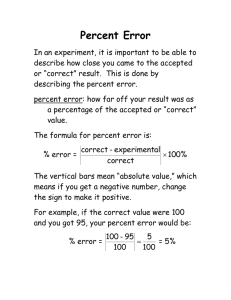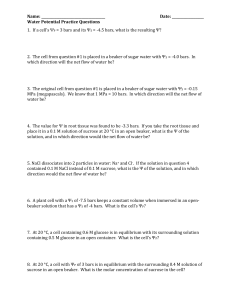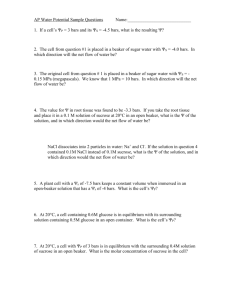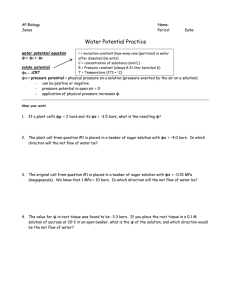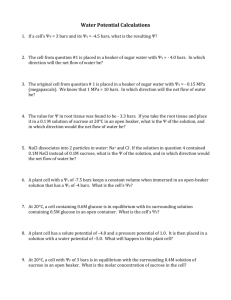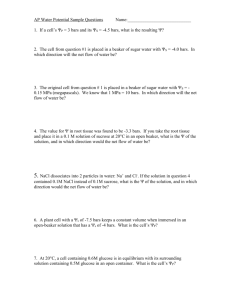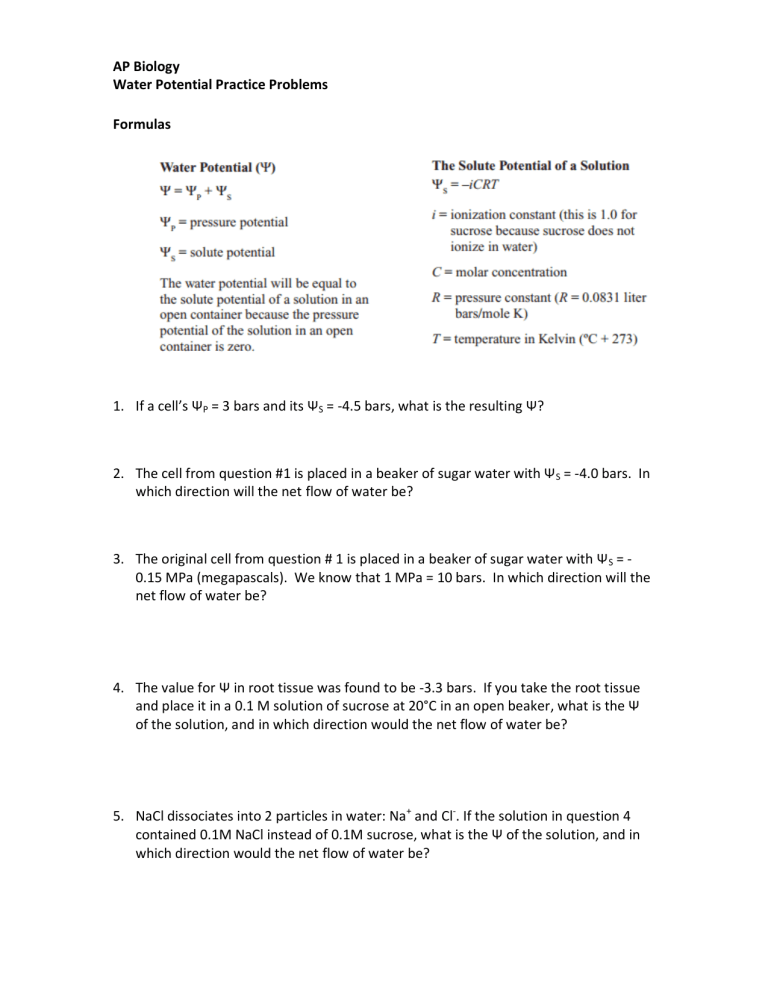
AP Biology Water Potential Practice Problems Formulas 1. If a cell’s ΨP = 3 bars and its ΨS = -4.5 bars, what is the resulting Ψ? 2. The cell from question #1 is placed in a beaker of sugar water with Ψ S = -4.0 bars. In which direction will the net flow of water be? 3. The original cell from question # 1 is placed in a beaker of sugar water with Ψ S = 0.15 MPa (megapascals). We know that 1 MPa = 10 bars. In which direction will the net flow of water be? 4. The value for Ψ in root tissue was found to be -3.3 bars. If you take the root tissue and place it in a 0.1 M solution of sucrose at 20°C in an open beaker, what is the Ψ of the solution, and in which direction would the net flow of water be? 5. NaCl dissociates into 2 particles in water: Na+ and Cl-. If the solution in question 4 contained 0.1M NaCl instead of 0.1M sucrose, what is the Ψ of the solution, and in which direction would the net flow of water be? 6. A plant cell with a Ψs of -7.5 bars keeps a constant volume when immersed in an open-beaker solution that has a Ψs of -4 bars. What is the cell’s ΨP? 7. At 20°C, a cell containing 0.6M glucose is in equilibrium with its surrounding solution containing 0.5M glucose in an open container. What is the cell’s Ψ P? 8. At 20°C, a cell with ΨP of 3 bars is in equilibrium with the surrounding 0.4M solution of sucrose in an open beaker. What is the molar concentration of sucrose in the cell?
